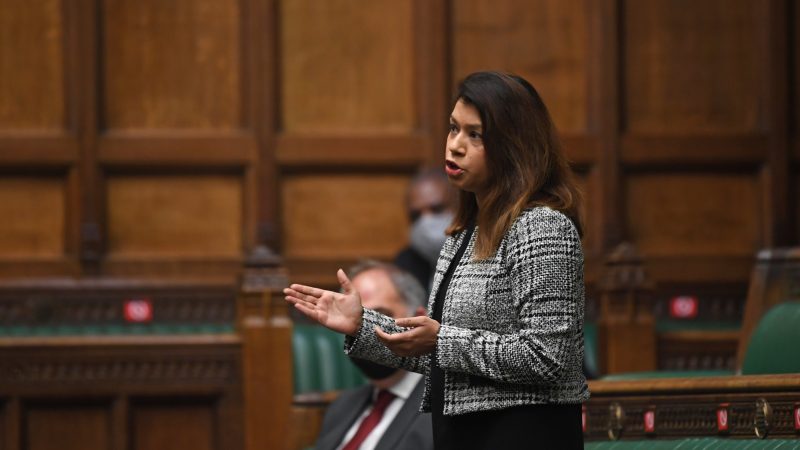
Tulip Siddiq has declared that flexible working must be a “right for all rather than a perk for the few” as she prepares to introduce new legislation backed by MPs from the Labour, Conservative, Lib Dem, SNP, SDLP and Green parties.
The bill, which the Hampstead and Kilburn MP will present under the ‘ten-minute rule’ procedure later today, would give all a right to flexible working from the first day in a job and ensure employers advertise flexibility in job postings.
The proposed legislation comes as data from campaign group Pregnant Then Screwed recently showed that 71% of flexible working requests were rejected in the first year of the pandemic, an increase from the 53% rejected in the previous year.
The organisation’s helpline also received twice the number of calls from mothers who were experiencing flexible working issues, unrelated to home-working, between March 2020 and March 2021 as it had recorded in the previous year.
“There’s a misperception that the country has enjoyed a year of flexible working. The reality is that the majority of workers, and particularly those on lower incomes, have not felt the benefits of home working and all other forms of flexibility have declined since last March.
“Four in five workers want to work flexibly, but a shockingly high proportion of requests for this are rejected by employers – often with little or no justification,” Siddiq, a shadow education minister, said.
Employees currently have the right to request flexible working, but businesses are only obliged to handle the requests in a ‘reasonable’ manner and do not have to accept the request even if such an arrangement is possible.
In their 2019 manifesto, the Tories said that they would “encourage flexible working and consult on making it the default unless employers have good reasons not to”. Ministers have said consultation will take place later this year.
TUC general secretary Frances O’Grady said today that lots of workers will want to work more flexibly post-pandemic, and insisted that government ministers “must bring in a new right to flexible working for every worker, in every job”.
According to research by the trade union federation, 82% of workers in the UK want to work flexibly in the future, rising to 87% among female employees, including by switching to flexi-time or part-time working, job sharing, annualised hours, term-time working, compressed hours and mutually-agreed predictable hours.
“My cross-party flexible working bill would also give a huge boost to productivity, women’s employment and the economic recovery,” Siddiq said.
“As we emerge from the pandemic, we have a real opportunity to extend to everyone the flexibility that has benefitted many new home-workers and make a real difference to the lives of working parents in particular. I very much hope the government will recognise this and support my bill.”
A 2019 government study found that jobs advertised flexibly attracted 30% more applicants than those that did not. RCM research showed 76% of midwives who had left their jobs could be persuaded to return if given the chance to work flexibly.
Siddiq’s bill is being supported by the Flex for All campaign, which is backed by the TUC, Pregnant Then Screwed, the Fawcett Society, Mother Pukka, Young Women’s Trust, Gingerbread and The Fatherhood Institute and Working Families.
Ten-minute rule bills are a type of private members’ bill, as opposed to those introduced by the government. The vast majority do not progress to become law as this type of instrument is not given priority in the parliamentary calendar.
Co-sponsors of the bill are Conservative MP Laura Farris, the Lib Dems’ Layla Moran and Christine Jardine, Green Party MP Caroline Lucas, the SNP’s Philippa Whitford and Alyn Smith, Claire Hanna of the SDLP and Labour’s Mary Foy, Kevin Brennan, John McDonnell and Dawn Butler.
Downing Street confirmed last week that the government is considering introducing a right for employees to request home working specifically, and a spokesperson said a flexible working task force was examining how best to proceed.
But they stressed that there would be no legal right to work from home, reporting that the Prime Minister Boris Johnson still believes that there are benefits to working in the office, such as in-person collaboration with colleagues.




More from LabourList
‘Unity or division’: Starmer’s message to voters in Gorton and Denton
Almost half of Labour members oppose plans to restrict jury trials, poll finds
‘How Labour can finally fix Britain’s 5G problem’